
The Team
Main navigation
The Team

Clinical Team
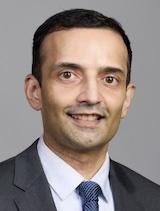
Ajai Chari, MD
Professor, Medicine
Director, Multiple Myeloma Program
Dr. Chari’s research interests include the development of novel chemotherapy regimens, including Phase 1 and 2 studies. He is principal investigator of both investigator-initiated trials as well as national and international industry-sponsored studies. In his previous role as Director of Clinical Research in the Multiple Myeloma Program at Mt Sinai New York, he oversaw the growth of a program renowned nationally for both high volume patient accruals and rigorous quality assurance. The program played a pivotal role in the approval of each of the most recent therapies to be approved by the FDA for the treatment of multiple myeloma.
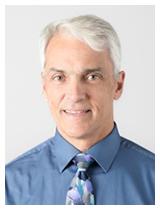
Thomas Martin, III, MD
Clinical Professor of Medicine, Division of Hematology/Oncology
Director, Clinical Research, Hematologic Malignancies Program
Co-Leader, Cancer Immunology and Immunotherapy
Associate Director, Myeloma Program
Co-Director, Grand MMTI
Research Profile | Physician Profile
Dr. Thomas Martin is a leading expert in hematological malignancies and has been the principal investigator (PI) on over 25 MM clinical trials. His clinical research also includes translational studies designed to address the genetics of MM, the role of the microenvironment as well as discovery of biomarkers for patient selection and response to anti-MM therapeutics.
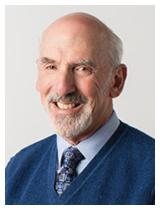
Jeffrey Wolf, MD
Clinical Professor of Medicine, Division of Hematology/Oncology
Director, Grand MMTI
Research Profile | Physician Profile
Dr. Jeffrey L. Wolf is a hematologist and expert in cancer of the bone marrow and blood as well as an expert in bone marrow transplantation to treat these cancers. His primary focus in both patient care and research is myeloma, including studies in the area of high-risk disease and the use of minimal residual disease (MRD) in clinical decision making.
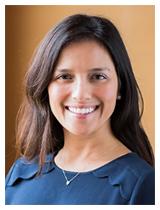
Shagun Arora, MD
Associate Clinical Professor, Division of Hematology/Oncology
Dr. Shagun Arora is a hematologist-oncologist who specializes in caring for patients with malignant and classical (cancerous and noncancerous) blood disorders. She treats patients with diverse hematologic conditions in both categories. Her focus is monoclonal gammopathies, or conditions in which the blood contains abnormal proteins, including MGUS (monoclonal gammopathy of undetermined significance) and multiple myeloma, along with anemias. Dr. Arora is also the medical director of the Infusion Center at UCSF's Parnassus campus and leads the plasma cell dyscrasia informatics projects.
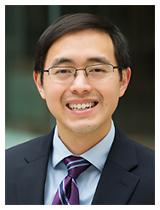
Alfred Chung, MD
Assistant Professor, Medicine, Division of Hematology/Oncology
Dr. Alfred Chung is a hematologist-oncologist who cares for patients with plasma cell disorders, including multiple myeloma and AL amyloidosis. Dr. Chung's research centers on the development of new therapies for plasma cell disorders and is the primary investigator on several clinical trials, studying novel cellular therapies, immunotherapies, and targeted therapeutics. He has a special interest in AL amyloidosis and serves as the lead amyloid hematologist at UCSF.
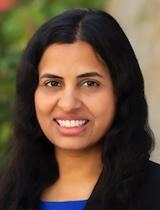
Anupama Kumar, MD
Assistant Professor, Medicine
Dr. Anupama Kumar is a hematologist-oncologist who specializes in caring for patients with multiple myeloma and other blood cancers. She also cares for patients who are undergoing treatments that include stem cell transplant, chemotherapy and cell therapies while in the hospital. In research, Kumar leads clinical trials evaluating new treatments for patients with multiple myeloma.
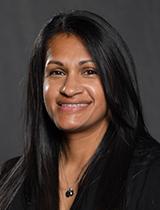
Jodi Lipof, MD
Assistant Professor, Medicine
Dr. Jodi Lipof is a hematologist/oncologist specializing in the care of patients with plasma cell disorders, including monoclonal gammopathy of undetermined significance (MGUS), smoldering multiple myeloma, multiple myeloma, and AL amyloidosis. She also provides care for patients undergoing stem cell transplants and CAR T-cell therapies. Dr. Lipof’s research focuses on leading clinical trials investigating novel therapeutics for plasma cell disorders, with a particular interest in determining the optimal sequencing of therapies in multiple myeloma to improve patient outcomes in the era of rapid therapeutic advancements.
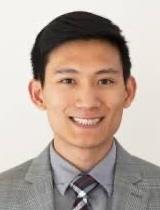
Darren Pan, MD
Darren Pan, MD Assistant Professor, Medicine
Dr. Darren Pan is a hematologist/oncologist specializing in the care of patients with multiple myeloma and other blood cancers. Dr. Pan conducts research identifying cutting-edge treatment options for patients with multiple myeloma with a focus on immunotherapies. He provides comprehensive care to patients both in the clinic and the hospital, including those undergoing bone marrow transplants and advanced cellular therapies like CAR T cell therapy.
Volunteer Clinical Faculty
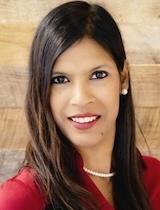
Nina Shah, MD
Clinical Professor Volunteer
Dr. Nina Shah is a specialist in blood diseases who focuses on treating multiple myeloma, a type of cancer affecting certain cells in the bone marrow. Her areas of professional interest include the intersection of immunology and oncology as well as helping patients fight multiple myeloma by boosting their immune systems. She previously was Professor of Clinical Medicine within UCSF’s Multiple Myeloma program. Currently, she is Global head of Multiple Myeloma Clinical Development and Strategy at AstraZeneca, but still sees patients every other week at UCSF.
Scientific / Translational Research Team
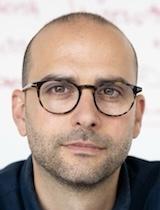
Justin Eyquem, PhD
Associate Professor, Department of Medicine
Gladstone-UCSF Institute for Genomic Immunology
Parker Institute for Cancer Immunotherapy
Research Profile | Lab Website
Dr. Eyquem’s research focuses on optimizing genetically modified immune T cells, known as CAR-T cells, to fight cancers and other diseases. He has pioneered methods to edit the genome of human CAR-T cells and developed techniques to reprogram their functions both outside the body (ex vivo) and inside the body (in vivo). Additionally, he leads a preclinical team dedicated at designing the most effective therapies for a UCSF clinical pipeline. Finally, he participated in multiple collaborations to facilitate the manufacturing of CAR-T cells for clinical use, including a UCSF clinical trial in Myeloma set to begin early 2025.
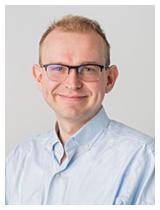
Robert Flavell, MD, PhD
Associate Professor, Radiology Chief, Molecular Imaging and Therapeutics Clinical Section, Radiology and Biomedical Imaging
Research Profile | Lab Website
Dr. Flavell’s laboratory focuses on the development of new molecular imaging and therapeutic tools for better understanding of disease progression in patients with prostate and other cancers. One area of interest is the relationship between acidic interstitial pH and disease progression, where he has developed new tools to directly image tumor pH using hyperpolarized 13C MRI and positron emission tomography (PET). Another major focus is the development of novel theranostic agents, where new therapies are paired with imaging agents against the same target. Dr. Flavell's research spans from basic chemistry and chemical biology projects to translational and clinical studies.
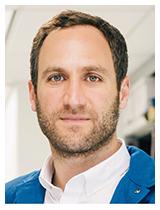
Alex Marson, MD, PhD
Professor, Medicine Director, Gladstone-UCSF Institute of Genomic Immunology
Research Profile | Lab Website
Dr. Alex Marson is a physician-scientist interested in how DNA controls the behavior of cells in the human immune system. His background is focused in immune genomics and the Marson lab is focused on adapting CRISPR genome editing techniques to human immune cells in order to understand the genetic programs controlling immune cell function and to manipulate T cells to generate cell-based therapies to fight cancer, autoimmune diseases, and infectious diseases.

Simone Minnie, PhD
Assistant Professor, Department of Medicine, Hematology/Oncology Division
Dr. Minnie’s laboratory studies tumor immunology in hematologic malignancies, particularly multiple myeloma. Her research focuses on preclinical modelling of immunotherapies, including cellular therapy, in mice to better understand the immunological mechanisms that underpin response versus resistance. This allows for the design of novel therapeutics as well as rational combinations of existing therapies.
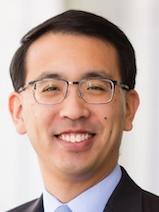
David Oh, MD, PhD
Associate Professor in Residence, Division of Hematology/Oncology Co-Leader, Cancer Immunotherapy Program (CIP) Co-Leader, Cancer Immunotherapy Toxicity Evaluation (CITE) Clinic
Physician Profile | Lab Website
Dr. Oh is a physician-scientist focused on developing novel immunotherapies for cancer for improved outcomes. Clinically, he treats patients in the CIP Clinic, which implements first-in-human novel cellular and non-cellular immunotherapy trials. He is Co-Director of the CITE Clinic, which focuses on patients with immune toxicities after immunotherapy to provide expert clinical consultation and novel research to understand, prevent, and treat these toxicities. He also directs the Cancer Immunotherapy Laboratory (CIL) which interrogates samples from cancer patients receiving immunotherapy to uncover the components of the immune system that drive benefit, resistance, and toxicities.
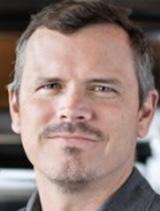
Brian Shy, MD, PhD
Medical Director, Human Islet and Cellular Transplant Facility Processing Facility Director, Pediatric Cell Therapy Lab Assistant Professor In Residence, Laboratory Medicine Director, Development and Manufacturing, Living Therapeutics Initiative
Research Profile | Lab Website
Dr. Shy’s laboratory employs cutting-edge genome and epigenome engineering techniques to develop, manufacture, and deliver advanced cell and gene therapies. Their research focuses on developing novel cellular engineering tools, increasing the safety and effectiveness of cellular products, refining manufacturing processes, and incorporating emerging delivery methods. They apply these technologies to develop better treatments for a wide variety of indications including inherited immune disorders, infectious disease, and cancer. These efforts feed directly into the pre-clinical development and GMP manufacturing pipeline to make next generation therapies rapidly available for UCSF patients.
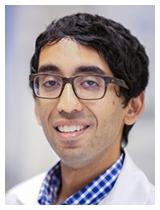
Arun Wiita, MD, PhD
Professor and Interim Chair, Laboratory Medicine
Director, Grand MMTI Translational Lab
Assistant Director, UCSF Cytogenetics Laboratory
Research Profile | Lab Website
Dr. Arun Wiita's research is focused on using mass spectrometry-based proteomics to discover new biology and therapeutic targets in hematologic malignancies (blood cancers). He leads an inter-disciplinary group that aims to integrate proteomics-based screening with “multi-omics” bioinformatics, clinical data, epigenetic methods, genome engineering, antibody engineering, cellular engineering, chemical biology, and mechanistic biology. Recent work has focused on using proteomic methods to discover new immunotherapy targets in multiple myeloma and then integrate these discoveries with protein and cellular engineering to develop new immunotherapeutics. Additional efforts include cellular engineering and small molecule combination strategies to enhance the efficacy of existing myeloma therapies.
Myeloma Support Team
Nurse Practitioners (NP)/Physician Assistants (PA)
- Grace Sevilla
- Sam Shenoy (Research)
- Nancy Wong
- Laura Zitella
Registered Nurses (RNs)
- Jennifer Brustein
- Lisa Dunn
- Katharina Ganapathi
- Julie Mccluggage (Research)
- Megan Shields (Research)
- Jenner Wells
- Samantha Zylberman (Research)
Cellular Therapy RN Coordinators
- Jennifer Knoche
- Gabbi Perez
- Cheryl Slagle
- Stephanie Stern Blitzstein
Pharmacists
- Francesca Alcala
- Eileen Bang
- Richard Fong
- Angela Lee
- Mimi Lo
- Kim Makashima
- Lily Yan
- Rebecca Young
Medical Assistants
- Nashia Raley
Data Analysts
- Vishaka Malhotra
Administrative Staff
- Shelby Abuhatzira
- Mary Kate Wood